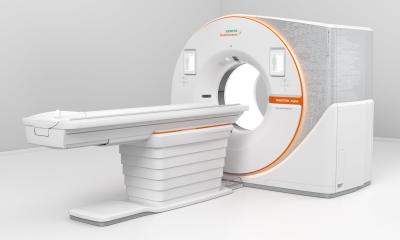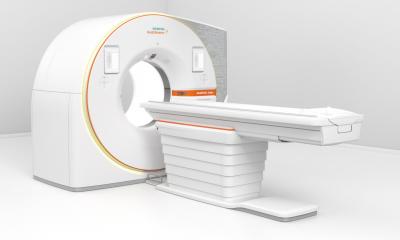ELF helps to assess chronic liver disease
Devised by the European Liver Test group, the new, non-invasive Enhanced Liver Fibrosis (ELF) test on Siemens ADVIA Centaur Immunoassay Systems can identify, in under an hour, bloodbased biomarkers to detect the amount of fibrosis in the liver.

One of the ELF inventors, Professor William Rosenberg, Peter Scheuer Chair in Liver Diseases University College London, said: ‘A large proportion of patients we see with end stage chronic liver disease present at a point where it’s too late for effective treatment to be started. Because the accumulation of liver fibrosis is largely asymptomatic, what we need is a test that we can use to detect the presence of fibrosis before it causes irreversible damage. In patients who are at risk of liver disease, ELF now gives us a test that enables us to identify those who do have liver damage.’
The simple, standardised ELF blood test assesses the severity of liver fibrosis by combining three direct serum biomarkers—hyaluronic acid (HA), procollagen III amino terminal peptide (PIIINP), and tissue inhibitor of metalloproteinase 1 (TIMP-1) — in an algorithm. The result is an ELF score that correlates to the level of liver fibrosis assessed by liver biopsy. Clinically validated in an international multi-centre study with a mix of patient groups, including viral hepatitis, nonalcoholic fatty liver disease and alcoholic patient groups, the ELF test has proved highly accurate, he concludes. In patients already known to have liver disease, ELF can be used to assess how bad that damage is and deliver quicker diagnosis and treatment. ‘If you start treatment for someone before they have cirrhosis we think their liver disease is reversible, whereas if you wait until they have got end stage liver damage then you will not be able to completely reverse the pathology and it may then be too late, leaving them at risk of liver failure and liver cancer,’ he adds. ‘This test is a significant step forward -- a transformational change.’
While it is too early to produce data on the effectiveness of its clinical use, he is confident ELF will benefit patients greatly. Dave Hickey, CEO of the Chemistry, Immunoassay, Automation and Diagnostics IT Business Unit, Siemens Healthcare Diagnostics, said: ‘By offering an automated, routine, minimally invasive blood test, Siemens provides an additional tool to physicians to aid them to easily assess the severity of liver fibrosis in their patients with chronic liver disease.’ Current research to assess ELF’s ability to detect cirrhosis in advanced liver disease include the ELUCIDATE study funded by the UK’s National Institute for Health Research.
10.07.2012





